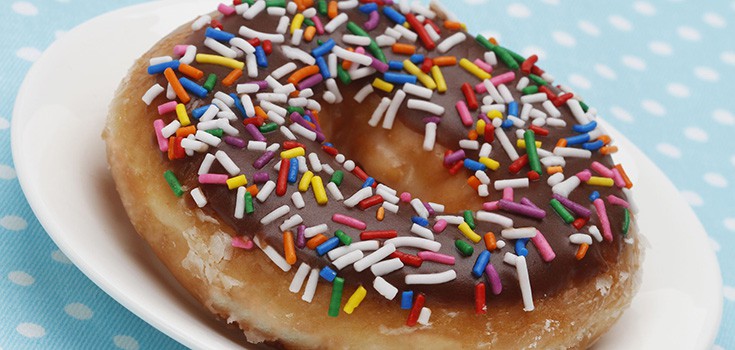Could Dieting Increase Desire for High-Calorie Foods? Why Dieting Fails

In less than one month, people will be making annual resolutions to lose weight, exercise more, and eat right. This time, they’ll say, they will really do it—really take back their health. But, as so often is the case, many will fall right back into old habits and possibly end up fatter and less healthy than before. There are countless reasons why diets fail—because so many are trends not based in real health science, we make excuses for unhealthy habits, and more. But a recent study found that dieting actually increases your cravings for high calorie foods, yet another factor working against the traditional dieter.
According to CNN, the study was presented at the Neuroscience 2012 conference by Dr. Tony Goldstone, who revealed that both dieting and fasting increases the brain’s desire for “bad” foods.
All study participants fasted overnight—as we all do during sleep. When they woke, they were given a 700-calorie breakfast. Then, they were shown photos of food while hooked to a brain imaging machine. Scientists analyzed their brain activity during the photo slideshow. The following day, study participants once again fasted overnight, but were given no breakfast before being shown the food photos.
On both days, the photos activated part of the brain in the orbifrontal cortex. But the reaction was far less strong after participants had eaten breakfast.
The orbifrontal cortex, says Dr. Goldstone, is responsible for how the brain perceives the “value” of a food—or how pleasurable it will be to eat. In other words, when you fast or deprive yourself of food (as in a diet), your brain sees high calorie foods as being far more pleasurable. The cravings and temptation to eat unhealthily, will be far more intense. This is what they found in the short term, at least.
So, what’s the solution?
The answer is simple: healthy eating habits. Diets will get you nowhere, but creating lasting, healthy eating habits that don’t deprive you in the long run will. That is to say, altering your lifestyle for the better is key. This doesn’t mean you should indulge in every whim, but don’t starve yourself. Stave off hunger with healthy choices and your brain won’t seek out high-calorie hunger-busters when it needs sustenance.
If you’re hungry, eat. If you’re not, don’t. Achieving a healthy weight doesn’t have to be complicated or horribly depriving. When we make it difficult and complex, a healthy body can seem elusive. We can’t ignore those things that do ignite weight gain, though. Watch out for conventional food with high fructose corn syrup, diet sodas with aspartame, and GMO foods.
For additional weight loss tips, check out these 4 methods on how to lose visceral fat as well as these 3 powerful methods for fat loss.
